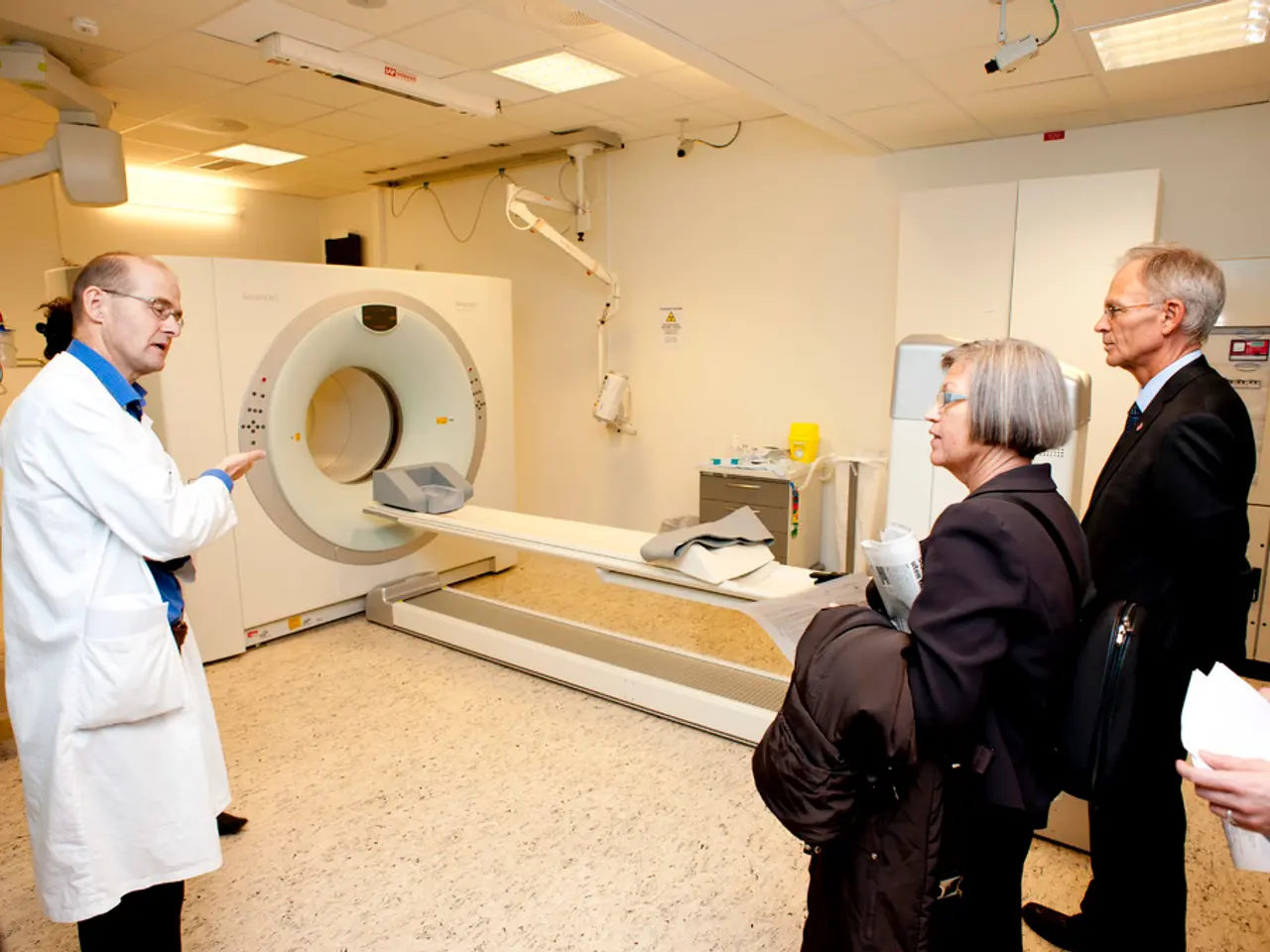AI's Capability in Reducing Healthcare Costs
In the ever-evolving world of technology, large language models (LLMs) are making significant strides in modern healthcare. These advanced AI systems are assisting in tasks such as medical imaging, automating diagnosis, and streamlining medical research.
Recent projections suggest that U.S. healthcare spending per capita will reach $12,703 in 2024, while in Pakistan, it is projected to be a mere $37. However, the adoption of AI in healthcare could potentially reduce U.S. health spending by 5-10%, equating to roughly $200-360 billion annually. Telemedicine consultations and remote monitoring have become common and stabilized at about 13-17% of all outpatient visits since the COVID-19 pandemic, with up to 80% of consumers intending to have another virtual visit post-pandemic.
Google, a leading tech giant, has entered the fray with the release of two new open-source models for healthcare AI: MedGemma 27B Multimodal and MedSigLIP. These models, capable of running on a single GPU, are fine-tuned for specific use cases and can handle both text and images, making them ideal for generating medical reports and X-ray triage, among other tasks.
MedGemma 27B Multimodal, for instance, scores 87.7% on the MedQA benchmark, rivaling larger models at a fraction of the cost. Meanwhile, MedSigLIP is an image-text encoder trained on medical images, perfect for classification, image search, and zero-shot tasks.
These models are not just theoretical; they are being used in real-world scenarios. Developers are employing them for tasks such as clinical note summarization, multilingual medical Q&A, and even X-ray triage.
One such example is Microsoft's AI Diagnostic Orchestrator (MAI-DxO), which outperforms physicians in diagnostic accuracy and cost-efficiency, achieving up to 85.5% accuracy on 304 clinical cases. The orchestrator can coordinate multiple LLMs, acting like a panel of virtual physicians that collaborate to reach a diagnosis.
Large language models are also transforming the way physicians learn and access up-to-date medical knowledge efficiently. They are enabling AI systems to reason and interpret complex medical data, providing tools for analysis, interpretation, and simulation of real-life scenarios.
However, challenges remain in ensuring factual accuracy, domain specificity, avoiding biases, ethical deployment, and seamless integration in clinical settings. Ongoing research and collaboration between AI developers and medical professionals are crucial for realizing the full potential of LLMs in improving healthcare outcomes and cost-effectiveness.
Global advances in health coverage have largely plateaued, with little progress made in recent years. Many people still face catastrophic health expenses, pushing them into poverty due to medical costs. The integration of AI and LLMs in healthcare could potentially address these issues by reducing costs, improving efficiency, and making healthcare more accessible.
In conclusion, the integration of large language models in healthcare is revolutionizing the industry, offering promising solutions to pressing issues such as cost and efficiency. Google's latest open-source offerings, MedGemma 27B Multimodal and MedSigLIP, are significant steps towards this goal, providing a foundation for further advancements in medical AI.
[1] "Healthcare AI: The Future of Medicine" - Forbes, [https://www.forbes.com/sites/forbestechcouncil/2021/06/23/healthcare-ai-the-future-of-medicine/?sh=7640c6686b5d] [2] "The Role of AI in Healthcare: Opportunities and Challenges" - The Lancet Digital Health, [https://www.thelancet.com/journals/landig/article/PIIS2589-7500(21)00294-X/fulltext] [3] "AI in Healthcare: A Review of Current Applications and Future Directions" - Journal of Medical Internet Research, [https://www.jmir.org/2021/1/e26642/] [4] "The Impact of AI on Clinical Trials: Challenges and Opportunities" - Nature Reviews Drug Discovery, [https://www.nature.com/articles/nrd.2021.26] [5] "Ethics of AI in Healthcare" - The BMJ, [https://www.bmj.com/content/371/bmj.m4806]
Artificial intelligence, driven by advances in science and technology, is being increasingly leveraged in the health-and-wellness sector to reduce healthcare costs and improve efficiency, with Google's open-source models, MedGemma 27B Multimodal and MedSigLIP, playing significant roles. These AI systems are being employed in tasks such as clinical note summarization, X-ray triage, and even coordinating multiple LLMs like Microsoft's AI Diagnostic Orchestrator (MAI-DxO), which outperforms physicians in diagnostic accuracy and cost-efficiency. However, ensuring factual accuracy, domain specificity, avoiding biases, ethical deployment, and seamless integration in clinical settings remain challenges for further realization of AI's potential in improving healthcare outcomes and cost-effectiveness.




